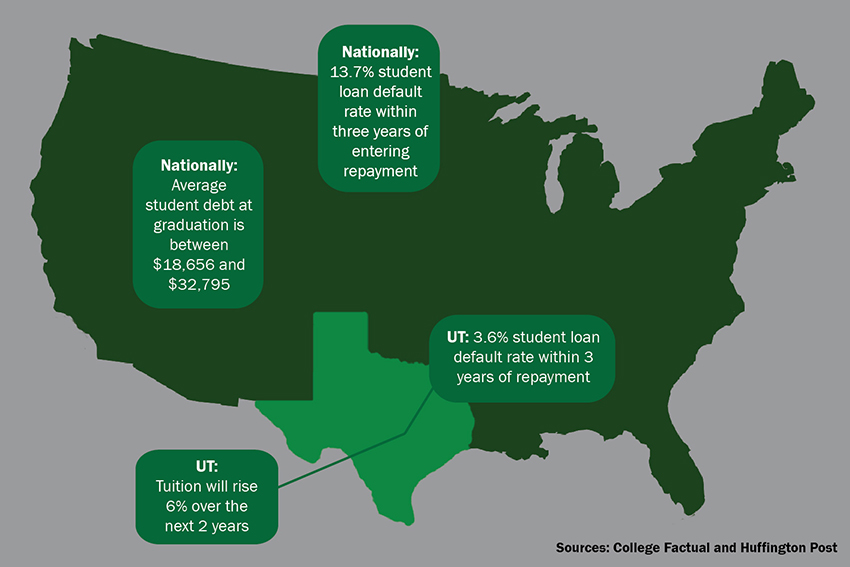There’s no doubt that the cost of college has been increasing extensively in the last few decades. In the next two years, students at the University of Texas at Austin will be subject to a 6 percent increase in tuition. This increase directly contributes to the dramatic burden of student debt.
Instead of enacting a policy that would either cap college tuition or redistribute American tax dollars in aid, the Department of Education would rather circumvent this larger issue by focusing on how to ease the means of payment for some students.
Newly appointed Secretary of Education John King Jr. spoke to various U.S. student reporters across the country in mid-March about the department attempting to ease the student burden by streamlining income-driven repayment plans and the public service loan forgiveness program. The former payment option caps student loan repayments to 10 percent of their monthly income, while the latter forgives student loans for full-time public service workers after 120 qualifying payments.
The problem is that they are contingent on eligibility and being a part of a specific economic sector. And while these means of alleviating the $1.2 trillion student debt help on some level, they fail to fully solve the biggest problem: college is just getting prohibitively expensive, and the American government gives off the perception that they don’t give a damn.
The ultimate solution needs to be directed towards redistributing money already spent on education to totally offset the cost of a college education.
Jordan Weissmann, columnist for The Atlantic, writes about the idea of making every public school in the nation tuition-free without increasing the nation’s spending.
“Here’s a little known fact: With what the federal government spent on its various and sundry student aid initiatives last year, it could have covered the tuition bill of every student at every public college in the country,” Weissmann said.
In their annual “Condition of Education,” the Department of Education reports that in the 2009–2010 school year, public colleges earned about $57 billion through tuition. According to the New America Foundation, on the other hand, the federal government appropriated $77 billion worth of tax breaks and grants for higher education in 2012. The money spent on education already exists — the government must make the decision to redistribute the money towards all of the public universities in the nation.
Redistribution of government funds alone, though capable of sending to college a majority of those who wish to do so, is problematic. This plan would funnel all of the money towards public universities at the expense of private universities, which would force us to reevaluate the amount of money the federal government ought to spend on higher education.
According to the White House website, the government spends about 24 percent of taxes on national defense and only 3.6 percent on education and job training. If the government were to redistribute even 1 or 2 percent of the defense budget, it would be more than enough to put towards higher education.
According to the National Center for Education Statistics, the total money spent between both public and private institutions — which include tuition, room and board — amounted to about $393.5 billion dollars in the 2010–2011 academic year. It would be more reasonable to demand that the federal government pay that price than have the American people pay the burdensome $1.2 trillion of student debt. Ultimately, the solution to this problem lies on where the people put value in politics, such that we urge the government to finally start making some sensible policy and shift their actions from marginally benefiting our monthly loan payments to more substantial fiscal change.
Choudhury is an economics freshman from Richardson. Follow him on Twitter @MubarratC.





















